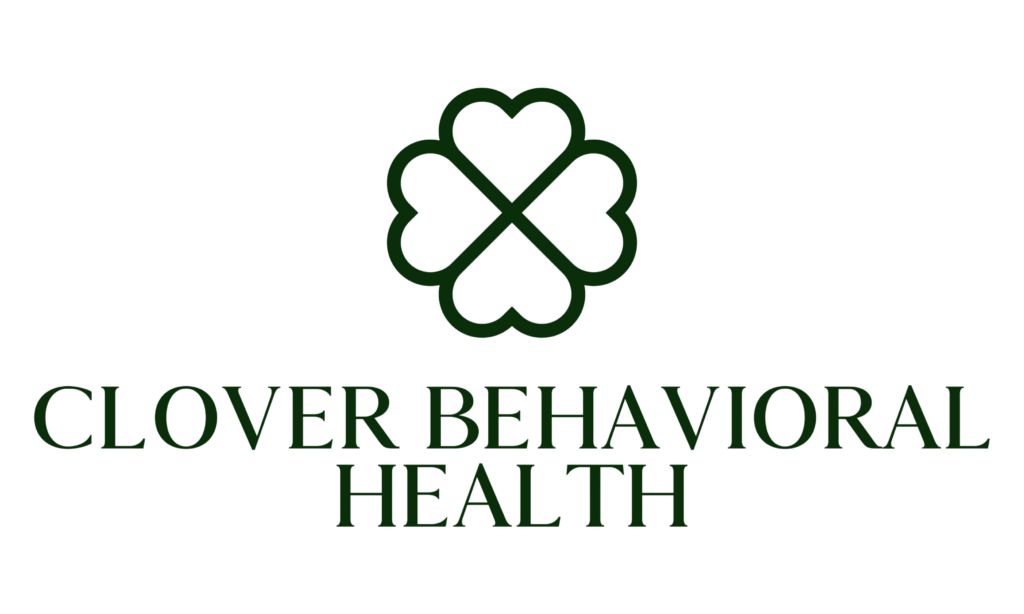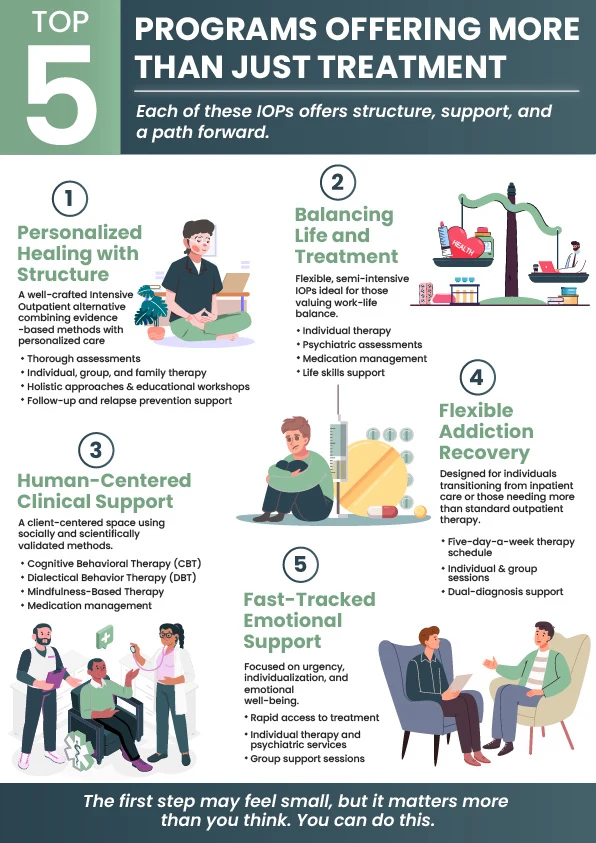The lock clicks shut, but something pulls you back. You look at it a second time, just in case. The soap lathers over your hands more than it should in the pursuit of a feeling of safety that never quite arrives. A phrase repeats in your mind until it feels “right.”
We all have established routines. Yet, when routines become rules and start controlling us, that’s when it’s time to take a closer look. ADAA reports that more than 2.5 million US adults are diagnosed with OCD, a mental health condition associated with compulsive thoughts and repetitive behaviors.
At Clover Behavioral Health in Bedford, MA, our professional therapists specialize in targeted therapy and medication management to help you regain control. In today’s blog, we’ll explore the common signs of OCD and how Bedford’s local mental health treatment centers can help you find clarity and calm.
What is Obsessive-Compulsive Disorder?
OCD is quite misinterpreted. It is more than being tidy, having everything in its place, or checking twice that you turned off the stove. It is a psychological disorder in which a form of intrusive thoughts known as obsessions generates anxiety. To reduce that anxiety, an individual experiences compulsions to do specific things; they are driven by the need to do so.
It is like a never-ending cycle. The eerie thought comes to mind: What if I hurt someone without being conscious of it? The mind refuses to let go. The individual checks, rechecks, seeks reassurance, or recites some silent phrase in an attempt to reverse the fear. Regrettably, the relief is temporary, and in no time, the worry comes back.
Importantly, OCD exists on a spectrum. Some people may spend hours a day caught in these loops; for others, the signs may be quieter, hidden behind smiles or silent struggles. What unites all forms is the distress, the feeling of being trapped in your own mind.
The good news? OCD can be treated. The initial step is to understand it as it is. Not as a personal fault but rather as a condition that should be understood and supported.
Common Obsessions and Compulsions
Obsessions | Compulsions |
Contamination Obsessions | Washing and Cleaning |
Sexual Obsessions | Mental Compulsions |
Violent Obsessions | Repeating Routine Activities |
Religious Obsessions | Constant Checking |
Perfectionism-related Obsessions |
5 Common Signs of OCD to Look For
Other than obsessions and compulsions, the following are 3 additional signs that you may have OCD. When you experience these symptoms over a period of 2 weeks or more, it is high time to get assistance in a reliable mental health treatment center.
Show Excessive Concern
One of the typical indicators of OCD is when one exhibits extreme worry about things that a greater number of individuals would not even give a second thought. This worry may be about cleanliness, safety, health, or doing something wrong.
Such anxieties are pressing, as though something awful will occur unless they do something. It can make an individual feel drained mentally, on edge, like the world is relying on their guard. Knowing these signs in Bedford, MA, can help families, friends, and individuals identify the patterns when they begin, allowing them to offer help sooner.
Constantly Seeking Reassurance
OCD may also be expressed by the need to constantly check with others to ensure that everything is alright. Their discussions are full of the kind of questions, like, Did I insult you? I believe that people dislike me!
The need for reassurance doesn’t knock politely. It barges in, again and again, even after you’ve been told everything is fine. No matter how many times someone says, “You’re okay,” the doubt finds a crack. It always does. Over time, this hunger for certainty can wear down relationships, blur boundaries, and turn everyday moments into rituals of fear dressed up as conversation.
Emotional and Daily Life Impact
There is a popular rule in psychology: you don’t have a disorder until it starts to affect your personal, social, and occupational functioning. Simple tasks like getting dressed, leaving the house, or answering a message can become exhausting when rituals and intrusive thoughts are constantly pulling for attention.
Moreover, shame may creep in, especially when others don’t understand what’s happening beneath the surface. Relationships can suffer. Work or school performance can slip. At last, the person struggling may begin to shrink their world to avoid triggering the anxiety. Yes, even when that means missing out on the life they want to live.
How Bedford’s Local Mental Health Experts Can Help
“To resist a compulsion with willpower alone is to hold back an avalanche by melting the snow with a candle. It just keeps coming and coming and coming.” ― David Adam
At Clover Behavioral Health in Bedford, Massachusetts, we don’t just treat OCD; we meet people where they are, with care that’s as human as it is evidence-based. We understand that no two minds get tangled in the same way. That’s why our approach is never one-size-fits-all.
Everything starts with listening.
Our initial assessments aim to understand the specific ways OCD shows up in someone’s life. The rituals, the fears, the doubts no one else sees. From there, we build a path forward.
That route could incorporate Cognitive Behavioral Therapy (CBT), Exposure and Response Prevention (ERP), or Acceptance and Commitment Therapy (ACT), all of which are founded in research and empathy. Many also rely on medication. When it does, our team carefully manages options like SSRIs and other antidepressants, ensuring treatment supports both the brain and the heart.
Final Words
OCD tells you to keep it quiet. To manage it yourself. To wait until it gets worse before asking for help. The truth is that reaching out isn’t a weakness. It’s wisdom. It’s the moment you decide that fear doesn’t get the final say.
At Clover Behavioral Health in Bedford, MA, you’ll find people who truly understand what it means to live with OCD. People who know how to help you move through it with clarity, support, and science-backed care.
If any of the signs in this article feel familiar, whether in your own life or someone you care about, don’t wait. Relief starts with a conversation. We will always be there for you.
Read Next: 5 Signs of Anxiety & What to Do About It
























